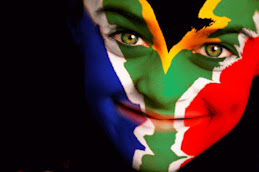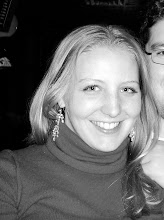Recently I spent four weeks with no functioning indoor plumbing. Due to an infrastructure malfunction, the water supply was almost non-existent to the house at which I’m staying. A tiny trickle came from the tap behind the house, which was to provide water for four people. It took about an hour to fill a five-gallon bucket, making the water supply extremely limited. Only small amounts could be used for simple activities like bathing, cooking, and laundry. During one of those weeks there was also no electricity, which meant no lights after dark (excepts candles and flash lights) and no hot water for bucket baths. Aside from being incredibly tiresome, this experience was an opportunity to learn and grow.
I didn’t realize how dependent I had become on modern conveniences like indoor plumbing and lighting until I had to go without them. I had never questioned whether water would flow from the sink faucet when I turned it. Although I had heard stories from returned Peace Corps volunteers, I never thought I would learn the art and science of the bucket bath, because the shower always worked. After living for weeks with very little water, I became very aware of exactly how much I was using. When your only source is very limited and time-consuming to acquire, every drop counts. When the water came back on, this now almost instinctive mentality remained, that every drop counts. When the water flowed through the pipes again, it felt so luxurious to do laundry without hauling buckets of water that took hours to fill. It was a glutinous indulgence to take a long, hot shower. I realized I had taken for granted how wasteful I had been in my water consumption and how privileged I am to have running water at all. In the crèche’s neighborhood where I work, no one has indoor plumbing. There are taps along the road where women come with their buckets for their daily needs. I suddenly had a whole new appreciation for the lives of my co-workers and the children at the crèche. I had endured that hardship for an insignificant amount of time compared to potentially one’s entire life.
This experience begged the question, how many other resources as a privileged person from the developed world do I take for granted? How often do I assume that “simple” things like water and electricity will always be there? And for how many of the world’s people have these things never been available? As another example, it took me months to realize that I’m working for free. There is something inherent in the job description of a “volunteer” that I am not receiving wages for the work I do. But it took me several months to realize that I’m not “profiting” from this experience. For whatever reason, I had never taken this idea to heart, because the stipend that I am provided with takes care of my daily needs: food, transportation, utilities, etc. There is also money for things like newspapers, minutes for my cell phone, the occasional movie rental or coffee… My needs and then some are provided for. At the end of the month there is usually just enough, or even a little left over, if I budget well. Tracking how much money I spend has become a spiritual discipline. By recording every cent, I hold myself accountable to exactly where my stipend is going. With a “limited” amount of money every month, I am aware that I can’t take it for granted by spending frivolously. And yet, many of the people that I work with can’t count on something as basic as a monthly stipend and barely scrape by on social development grants from the government. With the South African unemployment rate at 40%, for many there are simply no jobs available to earn a decent living.
I have been told that how people spend their time and money is a direct reflection on their values. A person’s schedule and checkbook reveal quite a bit about who they are as a person and their priorities. But if everything we have comes from God, how we use what we have been given is also direct reflection on the sort of relationship we have with God. This includes not only more “western”-valued things like time and money but literally everything: the roof over our heads, water in the pipes, food on the table, opportunities for employment and contributing to society… This includes not only physical, tangible things necessary for life, but also the intangible needs for love, acceptance, and community through relationships with family and friends… This continuous blessing is very difficult to compartmentalize, because it permeates every part of our lives. How can we work on our “spiritual lives” if every encounter, every action is a spiritual act, a communion with our Creator? God is in all of it, because he gives us not only everything in our lives, but our lives themselves. We have a responsibility not only to use what we have been given, but also to ensure that all people have access to those things necessary for life, as a response to the love that God has shown us.
Food for thought:
884 million people in the world do not have access to safe water. This is roughly one in eight of the world's population. (WHO/UNICEF)
2.5 billion people in the world do not have access to adequate sanitation, this is almost two fifths of the world's population. (WHO/UNICEF)
The weight of water that women in Africa and Asia carry on their heads is commonly 20kg, the same as the average UK airport luggage allowance. (UN HDR 2006)

